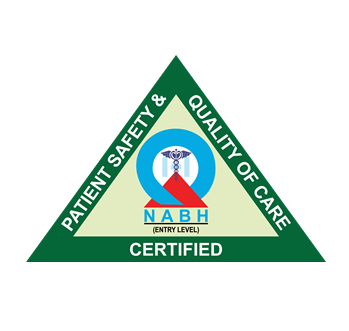
Common Signs Your Digestive System Needs Medical Attention
The gastrointestinal tract (digestive system) is responsible for food digestion, nutrient absorption and waste elimination in humans. For the average person, the systems of the body provide seamless function, and very little manual attention is needed. When the system does not function properly, it creates challenges and problems that are difficult to overlook. Some complications are benign and self-limiting, while others, including cancers of the gastrointestinal tract, could be life-threatening and hence require urgent attention. The early identification and understanding of the medical workup needed to diagnose them can help mitigate the risk of long-term complications.
Recognising the Symptoms
The digestive system encompasses the mouth, as well as the oesophagus, stomach, liver, pancreas, intestines, and rectum. Any abnormalities in these organs can lead to the development of gallbladder stones and associated complications. The symptoms mentioned earlier may stem from relatively minor illnesses, but if they are constant or become progressively frequent, they warrant further discussion with a health professional.
- Unexplained weight reduction. The most common etiologies associated with weight loss include well-documented malignancies, including cancers of the stomach and intestines and other chronic diseases.
- Blood in stool or blood resulting in black, tarry stools – undergoing physical and medical examination for the cause is critical since it can range from ulcers to death-causing colorectal cancer.
- Constant repetitive heartburn or its more severe version, indigestion – stronger forms of these symptoms may indicate acid reflux, extreme gastritis, or even cancer, potentially labelled as oesophageal cancer.
- Difficulty swallowing food and fluids (dysphagia) – this may result from oesophageal narrowing or growths, which make swallowing food and fluids more arduous.
- Chronic, uncontested, slow gut movement or the fast rate of movement of the gut has the potential to indicate the presence of irritable bowel syndrome, like in the case of one of its more dangerous, cancerous forms.
Swelling of skin and soft tissue, especially of the abdomen (bloating) – with persistent or ongoing midsection swelling, more severe underlying digestive problems could be present, especially without an apparent reason.
- Loss of appetite – notable and especially critical when combined with fatigue or notable weight reduction.
- Infections – These can lie in the form of viruses, bacteria, or parasites that may pose a sudden threat to the gut and the body as a whole unnecessarily and rapidly.
- Lifestyle – being overly active or with no stress whatsoever, and no access to metaphorical as well as physical cigarette smoke, and having no access to beer or any alcohol can also adversely negatively aid in digestion.
- Dietary habits – being overly active or with no stress can provide positive aid, and can also help in reducing beer or cigarette consumption, while eating alcohol can severely damage the gut, like resetting it.
Factors that could lead the presence of unmarked chronical illness resulting in a minimal, unmarked digestive problems, without any change can stem from a sudden change under an extreme of diet and an increase in physical activity in tandem with stress and under extreme of a cigarette, with alcohol can cause reset the gut back to a more normal state in turn result in the positive development towards one’s health.
When Symptoms May Indicate Cancer.
There are overlaps with many benign and serious conditions, including cancers of the gastrointestinal tract: stomach, colorectal, liver and pancreatic cancers. Often, the telling signs of cancer in the digestive system are:
- Significant, unexplained weight loss.
- Hematochezia or blood in the stool.
- Constant abdominal discomfort, Ongoing appetite reduction.
- Ongoing appetite reduction.
- Altered bowel movements or habits for over several weeks.
- While having these symptoms does not automatically mean cancer, they should never be dismissed. An early diagnosis unlocks enhanced treatment options.
How are digestive problems diagnosed?
The diagnosis begins with a comprehensive conversation and history-taking about symptoms, medical history and relevant habits. After this, a physical exam and some of the following specialised tests may be performed:
- Blood tests – looking for signs of inflammation, anaemia, liver or pancreas issues and some cancer markers.
- Stool tests – search for blood, infections or inflammatory changes.
- Endoscopy – direct visualisation through a thin camera tube of the oesophagus, stomach or colon to biopsy tissues or leave a sample for later analysis.
- Ultrasound or CT scans – imaging techniques to visualise internal structures and identify any growths or anomalies.
Why Early Medical Attention is Important
Early detection and management of some digestive conditions is best; however, some conditions can worsen over time. For instance, most colorectal cancers start as polyps; these can be removed in their pre-cancerous stage. Likewise, chronic acid reflux can exist without significant damage; however, when more serious issues arise, reversal is not as simple.
Early detection is important for digestive cancer survival outcomes. For individuals with a family history of these conditions, regular check-ups are advisable. East Point Hospital in Avalahalli, Bangalore, provides early diagnosis and screening services.
Book routine check-up appointments at East Point Hospital in Bangalore. This is especially important if you are over 40 or have a family history of gastrointestinal disorders.
Frequently Asked Questions
Q1 In what ways would one know if their gastrointestinal symptoms are severe or chronic?
In cases where you have chronic symptoms such as abnormal weight loss, stool with blood, swallowing issues or chronic abdominal pain, you would need to see a physician, as these symptoms could indicate serious issues, including cancers of the gastrointestinal system.
Q2 Which types of examinations are offered for cancer in the digestive system?
Common examinations are: digestive endoscopy, colonoscopy, blood, stool, ultrasound, CT, and MRI scans. To diagnose cancer, a biopsy is usually required.
Q3 Can one modify their lifestyle in order to reduce their risk of developing cancer in the digestive system?
Although not all cases are preventable, a balanced diet, fueling your body with nutritious foods, consistent physical activity, avoiding cigarettes, and cutting back on alcohol can greatly decrease risk. In addition, the cancers remain undetectable till very late, so screening for these cancers at regular intervals is essential.

